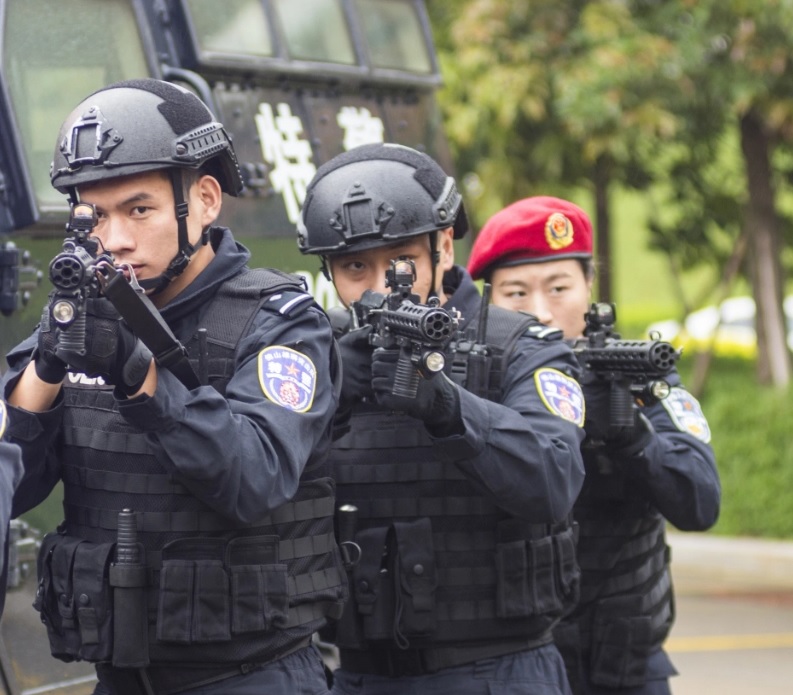Diplomats claim that China’s efforts to enhance security measures are impeding the operations of foreign embassies in the country. These diplomats stationed in China have been experiencing increased scrutiny and interference from Chinese authorities, making it difficult for them to rebuild connections after a three-year period of isolation caused by the COVID-19 pandemic.
A group of twenty diplomats from Western and Asian delegations have reported a rise in police presence around certain diplomatic premises in recent months. They have also observed Chinese authorities employing tactics to intimidate embassy contacts and disrupt civic outreach initiatives, particularly those related to the LGBT community and gender-related themes. These challenges faced by diplomats, primarily from Western nations, align with President Xi Jinping’s national security campaign, which has had a negative impact on international business and discouraged Chinese citizens from engaging with foreign missions.
China has introduced amendments to its counterespionage legislation, expanding the definition of spying and granting additional powers to the police. Furthermore, access to certain data sources for overseas users has been restricted, and consultancy firms providing information about China’s economy have come under investigation. Thirteen diplomats from nine Western and Asian delegations have expressed that the difficulties they encountered in organizing events centered around gender equality, LGBT issues, and broader cultural activities illustrate the changing boundaries set by China.
According to the diplomats, they have faced instances where they planned activities focused on these topics, such as film screenings and panel discussions on women’s progress in the workplace to mark International Women’s Day. However, venue hosts or participants withdrew their support due to warnings from the police against collaborating with foreign missions. While the local partners involved were not disclosed, the diplomats consistently reported increased pressure on their work and Chinese contacts. Two diplomats described this interference as the most severe they have experienced during their combined ten years of service in China.
Guy Saint-Jacques, a Canada-based business advisor on China and former Canadian ambassador to Beijing, commented that these recent actions by China significantly curtail the soft diplomacy efforts conducted by embassies and create a chilling effect on potential Chinese attendees who are already subjected to harassment if they express any criticism of the regime.
China’s Foreign Ministry responded to these concerns by stating that it has always adhered to the Vienna Convention on Diplomatic Relations and has provided necessary protection and assistance to foreign delegations in China. It also asserted that every country has the right to enact domestic legislation to safeguard national security, which is in line with common practices worldwide. The Ministry of Public Security, responsible for policing, did not respond to inquiries regarding the diplomats’ testimonies.
China’s actions involving foreign missions have garnered significant attention recently, including authorities issuing warnings regarding the display of Ukraine flags at embassies. Despite the increased restrictions, diplomats from most missions have reported successfully organizing events this year, such as Europe Day celebrations promoting European unity. However, a few delegations stated that they experienced no issues with their events, primarily because they held them within embassy premises or, if held externally, avoided civic topics such as LGBT rights to avoid provoking China.
Peter Stano, spokesperson for the European Commission, emphasized that they maintain regular contacts with representatives of local civil society, not only in China but in all of their 145 EU delegations and offices worldwide. Nevertheless, Chinese civil society has faced increasing pressure, with arrests targeting lawyers, women’s rights activists, and other individuals. In May, the Beijing LGBT Center, an organization advocating for samesex marriage, closed down, citing “forces beyond our control.”
Yaqiu Wang, senior China researcher at Human Rights Watch, characterized the pressure exerted on diplomatic activities as China’s latest attempt to eliminate the remaining space for independent Chinese civil society activism. Wang suggested that Western governments should interpret these developments as evidence that Beijing has no genuine interest in fostering an environment conducive to open and free engagement with the rest of the world. According to three diplomats and two Chinese nationals who preferred to remain anonymous due to fear of reprisal, the police frequently contact Chinese LGBT or feminist activists before embassy events to discourage their attendance, sometimes summoning them to police stations. One Western envoy shared that a participant in an educational exchange stated she could no longer meet embassy officials after her university employer warned her of the national security risk involved.
Diplomats have expressed the belief that China is attempting to limit activities aimed at promoting certain political issues and undermine the effectiveness of their public communications. In April, Chinese human rights activists Yu Wensheng and Xu Yan were reportedly arrested while on their way to meet European Union officials in Beijing, as reported by the EU. Although China has not confirmed the arrests, it maintains its opposition to interference in its internal affairs. Three diplomats disclosed that this incident has made them more cautious when engaging with civil society figures. One Western diplomat expressed concern for the safety of their Chinese contacts, stating, “You really worry about the safety of our Chinese contacts.” Eight diplomats have reported an increased police presence outside specific diplomatic premises, with individuals claiming to be security officials questioning ethnic Chinese visitors about discussions taking place within the embassy.
Joseph Klingler, a partner at the law firm Foley Hoag in Washington, highlighted that China is obligated under the Vienna Convention to prevent any disturbance to the peace of a diplomatic mission or impairments to its dignity. Furthermore, China is expected to provide full facilities for the mission to carry out its functions. Klingler suggested that intentional disruptions of embassy activities could be considered a violation of one or both of these provisions.

